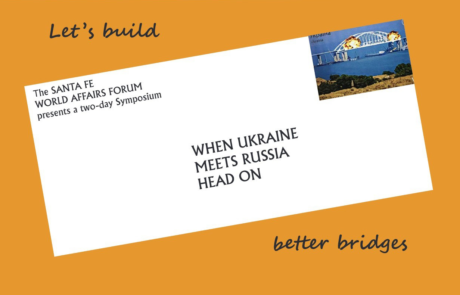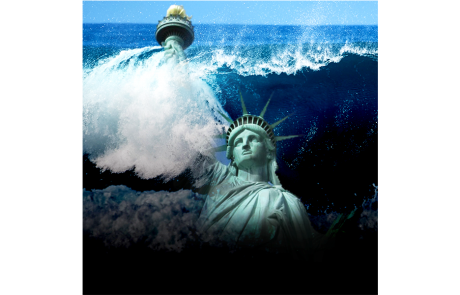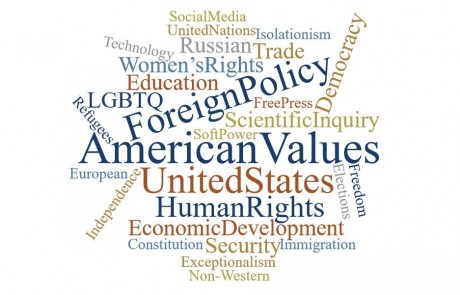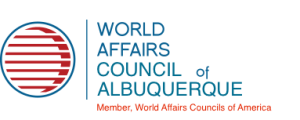To register for the 2025 Symposium, please email sfwaforum@outlook.com with names of registrants, days attending and whether paying by check to SFWAF and mailed to: The Santa Fe World Affairs Forum PO Box 31965, Santa Fe, New Mexico 87594. Or to by Paypal or credit card through our website at https://sfwaf.org/payment
April 10-11, 2025
Speakers
Gary A Grappo, US Ambassador (rtd) and currently Distinguished Fellow at the Center for Middle East Studies at the Korbel School of International Studies, University of Denver; CEO of Equilibrium Consulting.
Siegfried Hecker, former director of Los Alamos National Laboratory and current professor of practice at Texas A&M University and at the Middlebury Institute of International Studies, Monterey, CA;
Dr. Manuel Montoya, PhD, Associate Professor, University of New Mexico, Department of Economics. A member of the Council on Foreign Relations, he has delivered over 100 lectures on emerging markets and global conflict worldwide and is a recent recipient of UNM’s Presidential Teaching Fellowship, the university’s highest honor. He has also developed Vessels and Voids, a podcast, which he discusses the link between popular culture and development of global society.
Dr. Jody K Olsen, former Director and Deputy Director of the US Peace Corps and Peace Corps staff member and volunteer who currently co-chairs Women of Peace Corps Committee, chairs the Peace Corps Commemorative Foundation Park Advisory Committee and a member of the Maryland Governor’s Commission for Service and Volunteerism. Dr Olsen has also authored A Million Miles: My Peace Corps Journey which was published earlier this year.
Eric Rubin, US Ambassador (rtd) to Bulgaria and former president of the American Foreign Service Association;
Summary
We live in stormy times. The heyday following Communism’s end in the Soviet Union and Eastern Europe is a faded memory. History has not ended as once prophesized – it has instead moved on to the rise of populist leaders and their autocratic control domestically and internationally. The democratic model which promised so much is under challenge throughout the globe.
Can democracy survive the onslaught of autocrats? Can civil society institutions prove to be democracy’s underlying strength? But will they hold, or will they too falter?
There is deepening concern that autocrats, often initially elected democratically, have used the levers of raw power to dominate mainstream and social media, subvert education, and control elections first to hobble and then effectively destroy democracy turning back the clock by sweeping away progress on desperately needed reforms – from action on climate change to gender and income inequality.
Moreover, do autocracies now seize the opportunity to attack their neighbors? Threaten nuclear holocaust unless they get their way, and destabilize the
international order that kept the peace throughout much of the world since the end of WWII?
How significant is the ripple effect of the seemingly sudden demise of the 40 year old Assad dynasty not just for Syria itself but also for the greater Middle East, Russia, Ukraine, Europe, Africa, Latin America, Asia and beyond? How can a seemingly small pebble tossed into a sea turn into a tsunami of global proportions within a single week?
This symposium will analyze what such political changes, including those in this country, portend for democracy and the future of our world.
Symposium Schedule
Hours: The April 2025 Symposium will begin registration on Thursday at 9:00 am and conclude at 3:45 pm;
Friday will begin at 9:00 am and conclude at 4:00 pm.
Both days include a continental breakfast, a buffet lunch. Coffee, tea and water will be available during the program and at breaks
9:00-9:30 Registration & Continental Breakfast
9:30-10:00 Welcome – Dr. Becky Rowley, President SFCC, Santa Fe Mayor Alan Webber and Dr. Patricia H Kushlis, SFWAF President
10-11:30 Ambassador (rtd) Gary A Grappo
“A New Middle East: Same Old Conflicts,” US Ambassador (rtd) to the Sultanate of Oman is currently a Distinguished Fellow at the Center for Middle East Studies, Korbel School of International Studies, University of Denver and CEO of Equilibrium Consulting where he provides analysis and guidance on foreign affairs. A career Foreign Service Officer he served as Charge and Deputy Chief of Mission of the US Embassy in Riyadh, Kingdom of Saudi Arabia, and Minister Counselor for Political Affairs at the US Embassy Baghdad as well as assignments in Jordan and Jerusalem.
11:45 – 1:15 Dr. Emile Nakhleh
“Democracy’s Struggle in the Modern Arab State,” Former Senior Intelligence Service (SIS) Officer (CIA), Founding Director, Political Islam Strategic Analysis Program (CIA), Founding Director, Global and National Security Policy Institute (UNM), Life Member, Council on Foreign Relations, Consultant on the Middle East, political Islam, radicalization, terrorism, and intelligence.
1:15 – 2 Buffet Lunch
2 – 3:15 Ambassador (rtd) Eric Rubin
“The US, Europe, Ukraine and Russia: Where Do We Go From Here?” US Ambassador (rtd) to Bulgaria and former president of the American Foreign Service Association – the professional association and labor union of the Foreign Service; An active duty US Foreign Service Officer who focused on US policy and national security from 1985-2023. His assignments included Deputy Asst. Secretary of State for European Affairs and Deputy Chief of Mission in Moscow from 2008 through 2014.
3:30 – 4:45 Dr. Manuel Montoya
“Authoritarianism and Tensions in Modernity: How the Roots of Modern Civil Society Activate Authoritarian Sentiments,” PhD, Associate Professor of Economics, University of New Mexico with focus and publications on the global economy – from international trade to the creative economy. He is a Council on Foreign Relations member, Rhodes Scholar, recent recipient of UNM’s Presidential Teaching Fellowship, UNM’s highest teaching honor. Developer of the Podcast, “Vessels and Voids”, he explores the link between popular culture and the development of global civil society.
9:15 – 9:30 Registration & Continental Breakfast
9:30 – 10:45 Dr. Jody Olsen
“Helping Hands Do Make a Difference,” PhD, Peace Corps Director (2018-2021), former Deputy Director, Country Director (Togo) and Peace Corps Volunteer (Tunisia), Regional Director (Europe & Asia), visiting professor and director of the Center for Global Education, University of Maryland-Baltimore, including co-chair of Women of the Peace Corps Legacy and member of the Maryland Governor’s Commission for Service and Volunteerism, author of “A Million Miles: My Peace Corps Journey” 2024.
11:00 – 11:45 Student Panel: UNM, UWC-USA, SFCC
Chaired by Dr. Steven Bishop, Director – International Studies Institute, UNM
11:50-12:50 Buffet Lunch
12:50 – 2:20 Dr. Siegfried Hecker, Professor of Practice, Texas A&M University and Middlebury Institute of International Studies at Monterey, CA, Professor Emeritus, Stanford University and Director Emeritus, Los Alamos National Laboratory in conversation with Arvid Lundy, SFWAF Vice President.
2:20 – 2:30 Coffee Break
2:15 – 3:45 Immigration Panel: information panel and discussion with three New Mexico experts Chaired by Krista Peterson, SFWAF Board Member
3:30 – 4:00 Closing – Dr. Patricia H. Kushlis

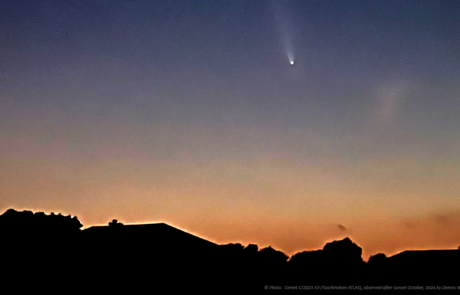

 Is American influence waning? Is the United States stretched too thin? Or is the US still the world’s indispensable nation? Can it be both? If so, for how much longer? How stable – at home and abroad – is American democracy and US leadership? Or is it being irreparably eroded from within and without?
Is American influence waning? Is the United States stretched too thin? Or is the US still the world’s indispensable nation? Can it be both? If so, for how much longer? How stable – at home and abroad – is American democracy and US leadership? Or is it being irreparably eroded from within and without?